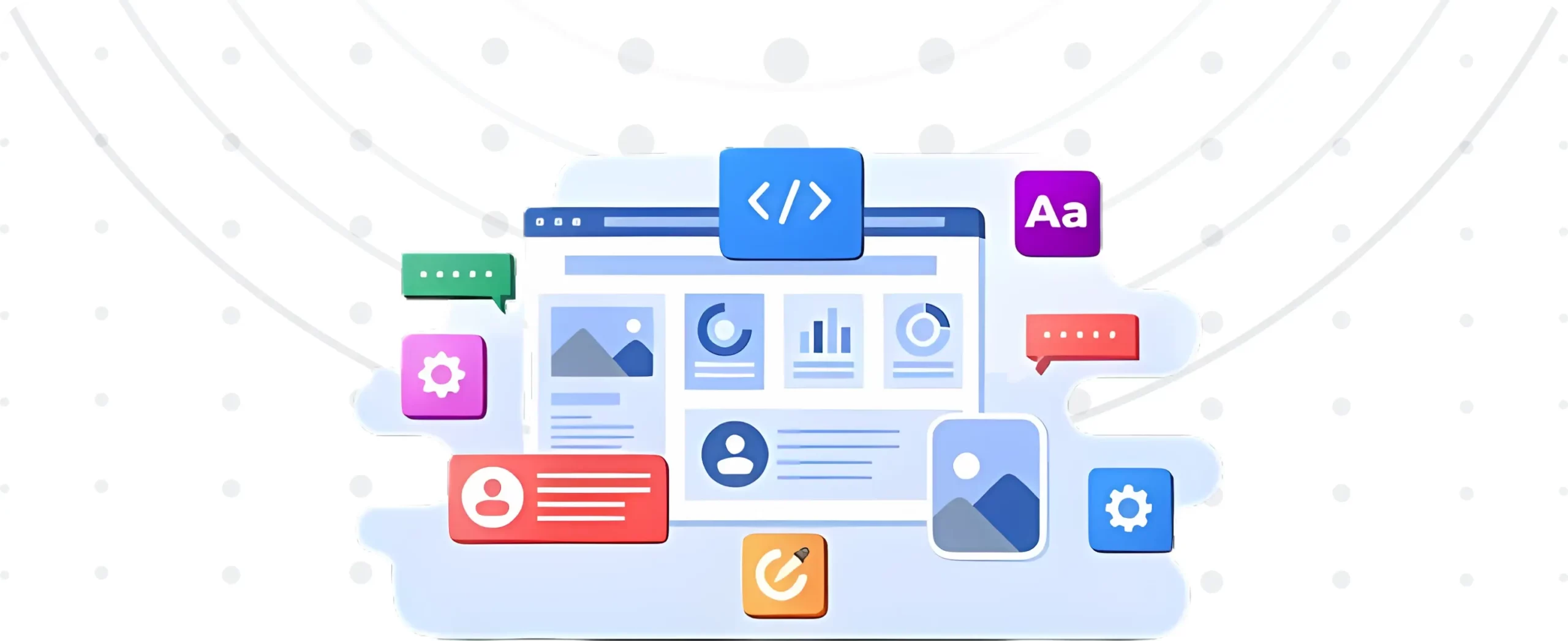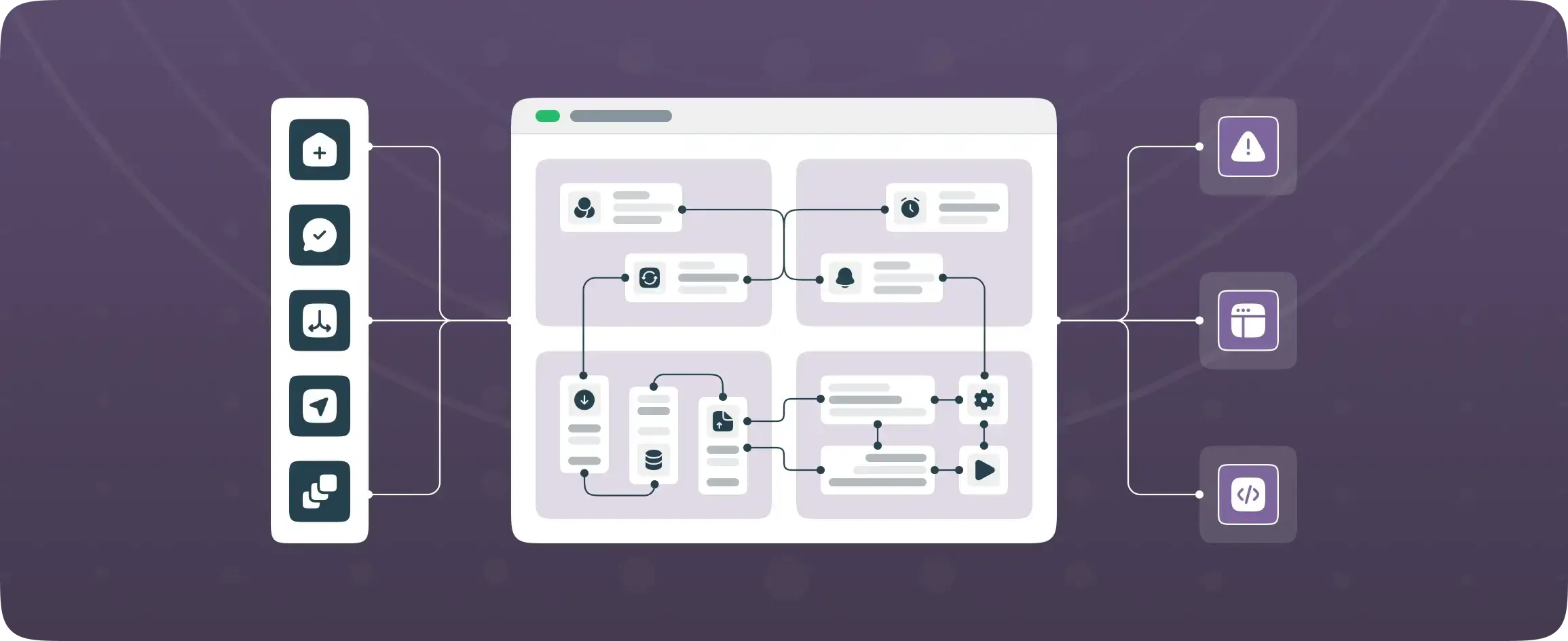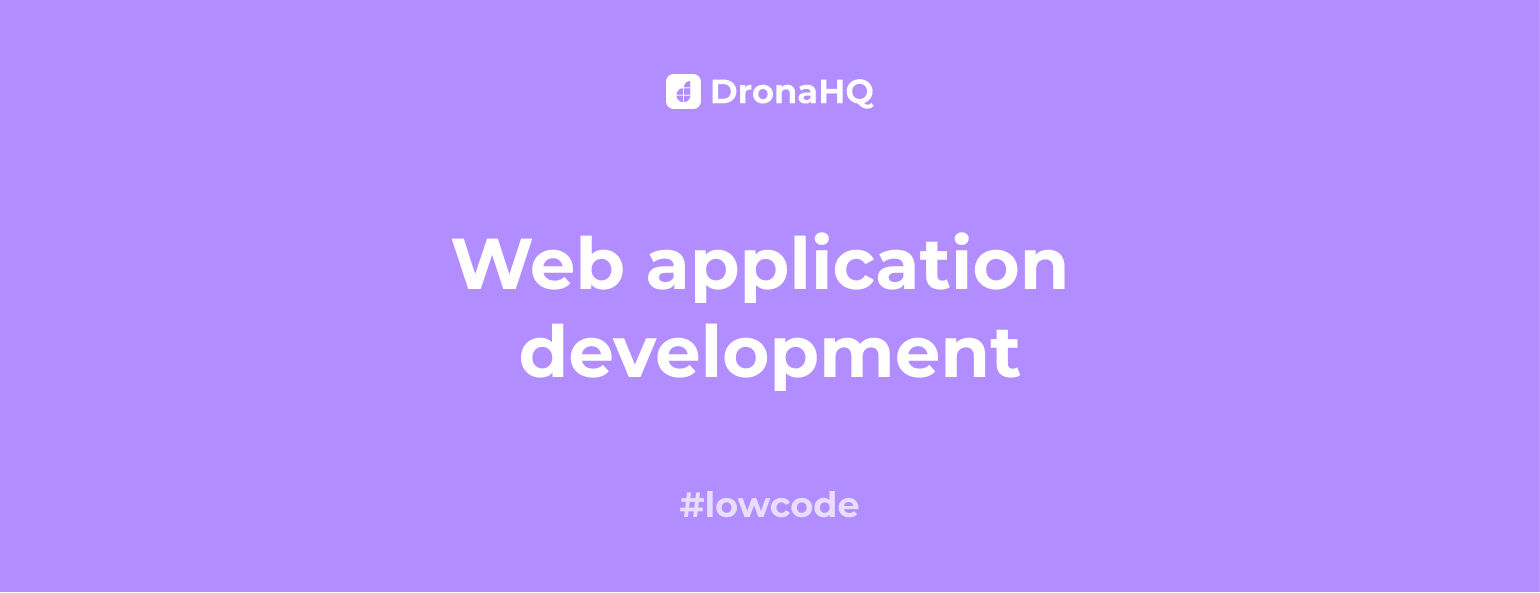

A guide to custom web application development
Web applications are an integral part of businesses, offering dynamic functionality and accessibility across various devices. From e-commerce platforms to project management tools, web applications are a must-have; they cater to diverse needs and provide seamless user experiences. We use web apps even if we don’t know it.
In this guide, we will delve into the world of custom web application development, exploring its significance, types, methodologies, and services.
What are web applications?
Web applications are software programs accessed through web browsers, allowing users to interact with data and perform tasks over the internet. Unlike traditional desktop applications, web apps do not require installation and can be accessed from any device with an internet connection.
Examples include online banking systems, social media platforms, and cloud-based productivity tools.
What do we mean by custom web applications?
Custom web applications are personalized software solutions crafted to address specific business needs and challenges. They are meticulously designed to streamline processes, centralize data, eliminate data silos, and optimize internal or customer-facing operations. The primary objective of a custom web application is to tackle operational hurdles or augment existing business processes. Initially, developers create the web app using a suitable development framework, followed by rigorous testing and deployment.
Enterprises have diverse requirements for web applications tailored to their unique operations. For instance, the accounting department might necessitate a comprehensive application for managing accounts payable, receivable, and financial resources, while the business development team may prioritize a business intelligence tool for strategic insights.
These applications translate an organization’s distinct requirements into features, design elements, user experience, and more. They represent unique digital products accessible via the internet, offering users various functionalities and interaction opportunities. Custom web applications are typically accessed through web browsers, eliminating the need for users to download, update, or configure them to access their full capabilities.
These applications can encompass a wide range of functionalities, from a simple shopping cart to sophisticated demo request forms. However, in this article, our focus will be on enterprise web applications primarily utilized by employees, vendors, or partners within the organization.

Build custom web apps with DronaHQ low-code
Get started for free →Advantages of Custom Web Application
Going custom is like having a tailor-made suit versus buying off the rack—it just fits better.
- Custom web apps are flexible enough to adapt to your evolving needs. Need to add new features? No problem. Scaling up? Easy peasy. With custom web apps, you’re not stuck in one size fits all; you get tailor-made solutions that fit just right.
- Think of your web app as your business’s tour guide. With custom development, you get to design the user journey from start to finish. No more hoping users stumble upon your app in the app store. You can lead them there through clever SEO, eye-catching landing pages, or even those cool QR codes everyone’s buzzing about.
- You call the shots on security, deciding which gates to open and which to keep locked tight. Custom security measures like two-factor authentication and biometrics are easy to implement. Sleep easy knowing your users’ data is safe and sound.
- APIs rule the world. In today’s digital world, your apps need to play nice with others. Custom web apps seamlessly integrate with your existing tools and systems. Need your CRM to chat with your accounting software? With custom integration sharing data and boosting productivity comes easy.
When to choose custom web application development?
Custom app development becomes a compelling choice for businesses under various circumstances.
- Implementing complex functionality: If your business requires implementing complex functionality to offer a service, custom apps provide the flexibility and customization needed to meet those demands. Off-the-shelf solutions may not offer the level of sophistication required for your unique requirements.
- Exceptional performance: Custom app allows you to optimize the performance of your web application according to your specific needs. This can be crucial in industries such as eCommerce, sales, or customer service.
- Competitive industry environment: In highly competitive industries, having a custom web application tailored to your business needs can give you a competitive edge. It allows you to differentiate your offerings and provide unique value to your customers, helping you stand out in the market.
On a broader level, you can also consider custom web app development if you desire:
- Faster deployments: Compared to native mobile apps or desktop programs, web applications offer simpler and faster deployment. You can avoid the lengthy processes associated with app store listings and local installations. Deployment involves sharing a URL with users, making the app instantly accessible.
- Easy and wider access: Web applications are widely accessible from any web browser, making them convenient for users across different devices and platforms. This accessibility ensures that your tools are easily usable by employees, partners, and vendors.
- Fight user resistance: Web applications provide a high level of convenience to users who may be reluctant to download mobile apps due to various reasons such as limited storage space or cluttered home screens.
- Reduced development costs: Custom web development does not require investment in proprietary frameworks, vetting processes, or local installation packages. Additionally, the availability of ready-made components and front-end libraries accelerates development and reduces custom work.
Creating a custom web application
This essentially involves three processes-
- First, determine what type of data you need to store in your database and then build your database.
- Your front end will be the same as the wireframe/prototype you validated earlier. The front end consists of HTML, jS, and CSS. You will likely build your frontend and back end simultaneously.
- The backend is one of the trickier parts of the web application development process. The backend provides an HTTP endpoint for your frontend, authenticates users, and serves the frontend.
- Testing typically happens during and after the building phase and is an ongoing process. You can either automate the testing or do it manually. The testing components include functionality, usability, compatibility, security, and performance testing.
- Deploy your web application. You can now finally run your web application on a server.
Development methodologies
Custom web application development follows various methodologies to ensure efficiency, quality, and timely delivery. Common approaches include:
- Agile: Agile methodologies prioritize iterative development, collaboration, and flexibility. Teams work in sprints to deliver incremental updates and gather feedback from stakeholders.
- Waterfall: Waterfall methodology follows a sequential approach, with each phase (requirements, design, development, testing, deployment) completed before moving to the next. It provides a structured framework but may lack flexibility.
- DevOps: DevOps combines development and operations teams to automate processes, improve collaboration, and accelerate delivery. It emphasizes continuous integration, deployment, and monitoring to ensure rapid and reliable software releases.
Using low-code to build custom web applications
Low-code development platforms enable rapid application development with minimal coding requirements. They provide visual interfaces, drag-and-drop functionality, and pre-built components to accelerate development cycles and empower citizen developers. Low-code platforms offer flexibility, scalability, and customization options, making them ideal for building custom web applications efficiently.
Benefits of using low-code for custom application development
Traditional application development can be a maze of code, but low-code platforms offer a clear path with visual modeling. Say goodbye to endless lines of code and hello to drag-and-drop simplicity. With pre-tested components and intuitive interfaces, developers can build and deploy applications faster and with fewer errors.
- Building on tried and tested building blocks:
Why reinvent the wheel when you can build on what works? Low-code platforms offer building blocks such as UI components and templates and logic blocks and integrations to name a few. By leveraging these templates, developers can launch applications confidently, knowing they’re backed by proven solutions. With more time to focus on unique functionalities, developers can deliver innovative solutions without getting bogged down in the complexities of coding.
- Scaling with confidence:
Low-code platforms aren’t just for quick fixes—they’re built for long-term growth. With scalable solutions and robust internal networks, developers can easily expand their applications to meet evolving business needs. Plus, cloud-based infrastructure ensures flexibility and reliability, ensuring applications can adapt to changing demands.
DronaHQ for your custom web application development?
DronaHQ is a low-code platform offering the fastest and most secure way to build web applications. You can easily build your web application with minimal complexity in just a few days. Here is how DronaHQ can help you build a powerful web application-
Backend configuration- Users can use our dedicated connectors for Postgres, MySQL, REST, Oracle, Google Sheets, and much more
Drag and drop builder- DronaHQ offers 100+ responsive, reusable, powerful out-of-the-box UI components enabling building interfaces in a straightforward and quick manner.
Hosting- Users can enjoy instant deployments with minimal fuss or configuration with DronaHQ’s cloud hosting options, You can also deploy to your infrastructure using Kubernetes, Docker, and more.
Web+mobile output– Allows users to publish, manage, update, rollback, invite, and embed with any device (Android + iOS), and access specific settings easily.
Role-based views and user management- Protect data integrity by allowing only authorized user access to sensitive data and managing how a user uses your app with login authentication, email verification, user roles, and permissions.
Security– DronaHQ is SOC-II and ISO 27001 certified, and all plans include SSL encryption to keep your data safe. Also with a secure embed, only logged-in or authorized users can access the app.
Integrations– Smoothly manage data fetching. Integrate with any API, databases, and multiple third-party applications. Users can also visualize data coming from multiple data sources in a single view.
Doesn’t matter if you are a beginner, a tech enthusiast, or a professional developer, DronaHQ offers a seamless app-building experience with unmatched speed and flexibility.
Don’t believe us? Sign up now to test our claims!
FAQs about web applications
Web App vs. Website: How to differentiate the two
While both web applications and websites are accessed through web browsers, they serve different purposes and exhibit distinct characteristics.
Websites primarily provide static content and information, whereas web applications offer dynamic functionality and interactivity.
Websites typically consist of pages linked together, while web applications involve complex interactions and data processing.
What are the different types of web applications in web app development?
- Single-page Applications (SPAs): SPAs load a single HTML page and dynamically update content as users interact with the application. They offer a seamless and responsive user experience, making them ideal for interactive interfaces and real-time updates.
- Progressive Web Applications (PWAs): PWAs combine the features of web and mobile applications, providing offline capabilities, push notifications, and app-like experiences. They are designed to work across various devices and browsers, offering improved performance and engagement.
- E-commerce Applications: E-commerce applications facilitate online transactions, product browsing, and order management. They include features such as secure payment gateways, inventory management, and personalized shopping experiences.
- Enterprise Resource Planning (ERP) Systems: ERP systems integrate core business processes such as finance, human resources, and supply chain management into a single platform. They streamline operations, improve decision-making, and enhance collaboration across departments.
Custom web application services
Custom web application development services encompass a range of offerings to support businesses throughout the development lifecycle. These services may include:
- Requirements Analysis: Understanding business objectives, user needs, and technical requirements to define project scope and goals.
- UI/UX Design: Creating intuitive and engaging user interfaces to enhance usability and accessibility.
- Development: Building custom web applications using industry-leading technologies and best practices.
- Testing: Conducting thorough testing to ensure functionality, performance, and security.
- Deployment and Maintenance: Deploying web applications to production environments and providing ongoing support, updates, and maintenance services.






